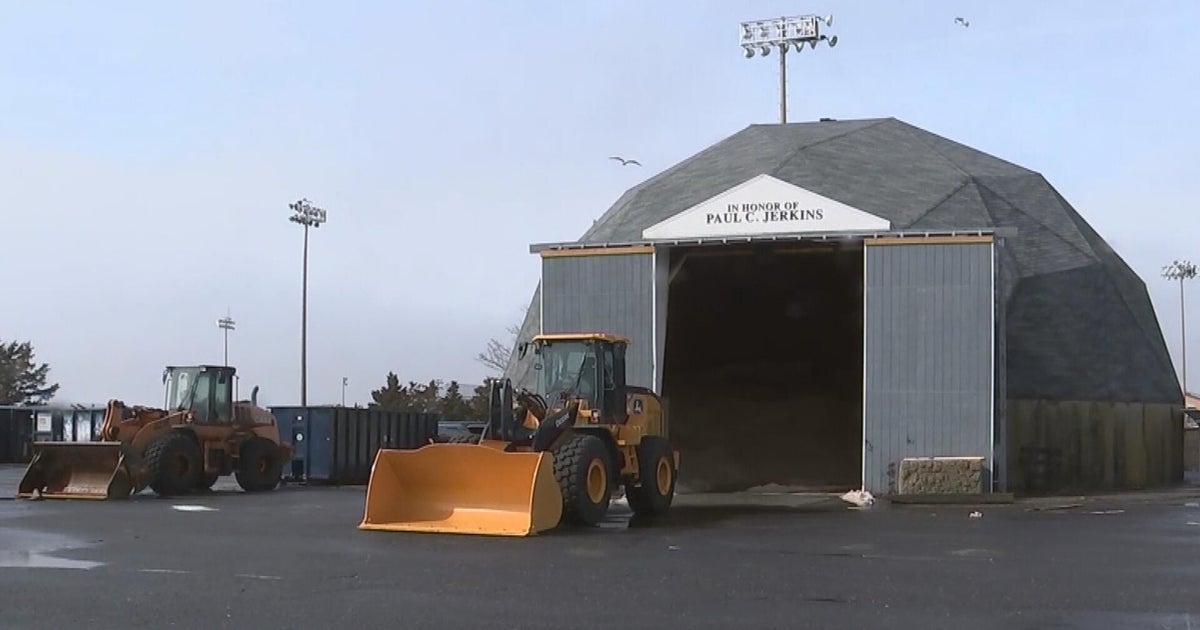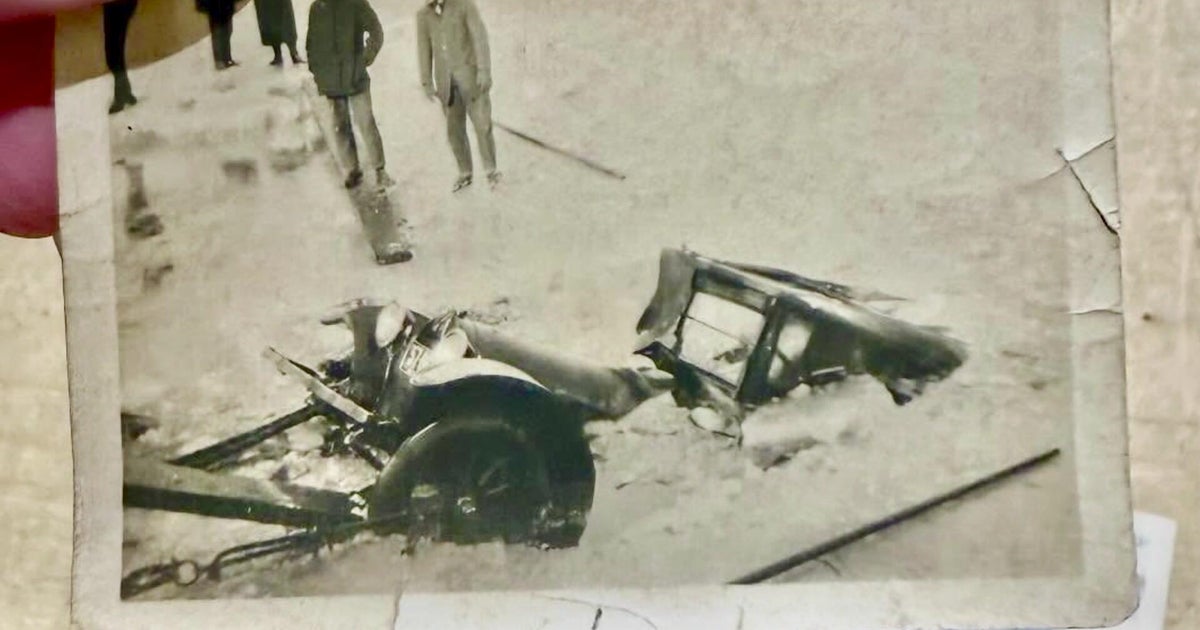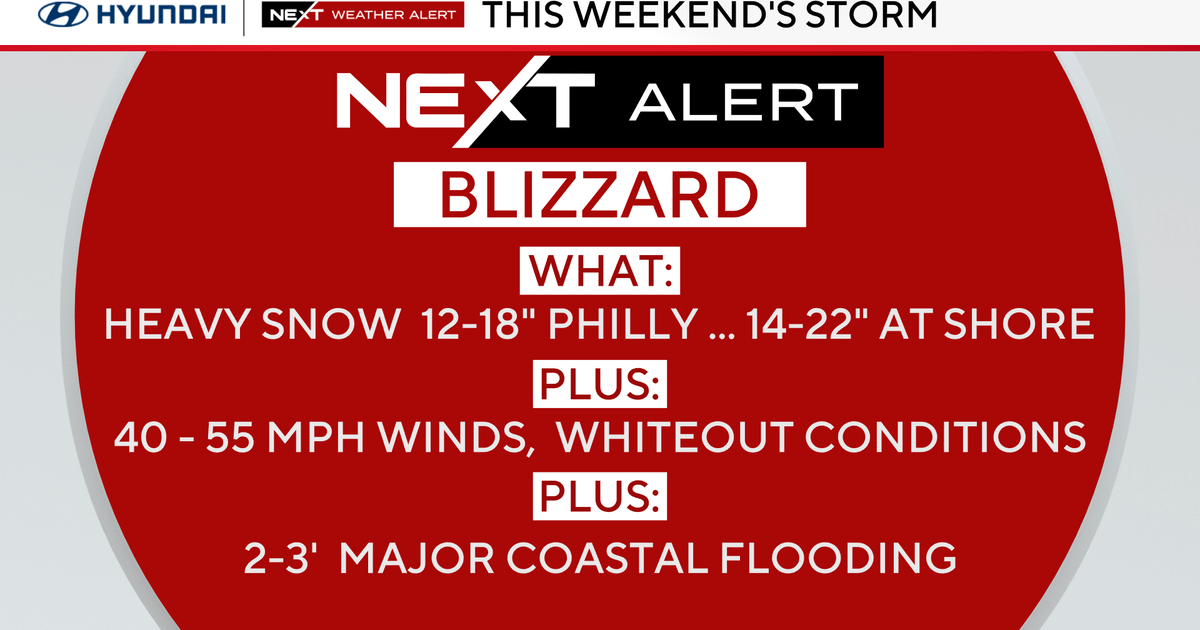CBS SF Talks to Earthless Drummer Mario Rubalcaba (Part 2)
By Dave Pehling
SAN FRANCISCO (CBS SF) -- Powerhouse drummer Mario Rubalcaba has established a reputation as potent, hard-hitting player of the course of an over 30+ year career as a musician, becoming a longtime key player in the San Diego scene.
First coming to some notoriety as a professional skateboarder with Team Alva in the late '80s, Rubalcaba added music to his activities by 1990, playing drums in punk band 411 and guitar in Chicano Christ, whose self-titled 1991 7-inch EP crammed a dozen blasts of hardcore into 12 minutes.
Near the end of 1993, Rubalcaba and guitarist Scott Bartoloni (from the recently defunct punk band Heroin) would found the influential post-punk outfit Clikatat Ikatowi that put out a pair of albums and an EP over the next several years before the group called it quits late in 1997. Rubalcaba would then relocate to Chicago for a few years, playing in the instrumental post/stoner rock group Sea of Tombs.
Upon his return to San Diego, he had had earned his stripes as one of the go-to punk drummers in Southern California, playing in indie group the Black Heart Procession and becoming a regular collaborator with prolific punk guitar maestro John Reis in a number of his bands including the long-running, horn-powered Rocket From the Crypt, the surf-tinged Sultans and Hot Snakes. Rubalcaba would also eventually be part of Black Flag/Circle Jerks singer Keith Morris's all-star hardcore revival band Off! when it came together in 2009.
More importantly, Rubalcaba would co-found the epic psychedelic power trio Earthless with guitar hero Isaiah Mitchell and bassist Mike Eginton in 2001. Taking an open-ended improvisational approach to heavy psych rock that alternately recalls the jam-heavy exploration of Cream and Jimi Hendrix, Japanese psych pioneers Flower Travellin' Band and Blues Creation and obscure '70s riff alchemists like Dust and the Groundhogs.
Locking into epic grooves stretching to 20 minutes and even longer without losing their dynamic upward trajectory, their string of stellar studio albums and transcendent live performances have earned Earthless a reputation as one of the best heavy music acts performing today.
While Earthless has largely worked in the instrumental realm for the better part of its over two decades of blowing minds and sonically realigning chakras, the trio took marked departure for its 2018 album and first for new label Nuclear Blast, Black Heaven. Featuring four vocal tracks with Mitchell singing, the effort also included far more songwriting input from the guitarist than in the past. At turns recalling the James Gang and Thin Lizzy (propulsive opening track "Gifted By the Wind") or a diabolical melding of Zeppelin, Funkadelic and Hendrix (the monstrous instrumental title track), the new tunes were hailed as some of the band's most focused yet.
The band toured extensively to promote the record, also releasing the live album From the West recorded at the Great American Music Hall in San Francisco that documented intense performances of the new songs plus a cover of Led Zeppelin's "Communication Breakdown." Packaged to mirror a classic Trademark of Quality Zeppelin bootleg from the early '70s, the ferocious recording was issued on vinyl via Sliver Current Records and saw CD release on Nuclear Blast with additional songs not included on the record version.
With the announcement in late 2019 that Mitchell would be joining a new line-up of the Black Crowes as their lead guitarist for an extensive tour celebrating the 30th anniversary of that band's 1990 debut Shake Your Money Maker, there were some questions as to how the guitarist's new gig would impact activity with Earthless. Those questions were answered when the coronavirus pandemic shut down all touring activity for most of 2020.
Earthless was able to reconnect just prior to the shutdown when Mitchell relocated back to the trio's San Diego home base. The move gave the band a chance to play together more regularly than they had in years, allowing them to develop the extended songs that make up the band's latest album for Nuclear Blast, the ambitious Night Parade of 100 Demons.
Inspired by a book of Japanese ghost stories that Eginton read to his young son who is fascinated with mythical monsters, the tale of the Night Parade or Hyakki Yagyō described an otherworldly procession supernatural creatures that would descend on Japanese villages, in some versions striking dead all who witnessed them or whisking hapless villagers away to the spirit world.
With striking cover art meticulously created by Eginton himself, the new album finds Earthless returning to sprawling instrumental epics with the hour-plus recording featuring just two songs: the intense two-part title track that features some of the trio's most harrowing music ever rounded out by the over 20-minute closer "Death to the Red Sun." Featuring arguably the broadest sonic palette the band has used yet, the record finds Earthless crafting a more intricate whole, with multiple restated themes making Night Parade of 100 Demons the band's most ambitious and cohesive effort yet.
Rubalcaba recently spoke to CBS SF about the band's activities during the pandemic shutdown, the process that went into crafting the music on the new album that was released on Jan. 28 ahead of the band's show scheduled for that weekend at the Cornerstone in Berkeley. Unfortunately, the live performance that would have been just two days after the release was postponed until Feb. 20 due to a case of COVID in the band's camp.
CBS SF: I think I saw a Twitter post by the band mentioning that you were at Secret Serpent Studios in San Diego for just a week to record the album. Did you have everything mapped out pretty clearly with the two songs fairly well rehearsed by the time you went in to record to be able to do everything in such a short space of time?
Mario Rubalcaba: Yeah, we had them down pretty good, I think. Personally for me, I was still a little bit like, "Man, fingers crossed, I hope everything goes well." Initially we wanted to take a little bit more time for the recording process, but then kind of realized that we don't really work that way. We usually play live in a studio for the most part. We'll get the basic tracks down live and then we'll add stuff afterwards, you know? So once the drums were out of the way and that was set, I think everything else just kind of flowed together pretty well.
So I think we took three days total to get all the basic tracking done. On the third day we had like a "Speak now or forever hold your peace" type of thing, and at the last minute, I was like, "Let's do the second song over again. Just one last attempt." 'Cause I was listening back to the first take of it and I thought it was a little too fast and rushed a little bit. And so I was like, "Let's take one last stab at it." And that ended up being the take.
CBS SF: Oh, wow. So good call I guess...
Mario Rubalcaba: Yeah [laughs]. That kind of stuff is fun.
CBS SF: By and large, Earthless is mostly the three of you on your individual instruments, but I've noticed on past albums a little bit of synth here and there for sweetening. But it never seems like there's a lot of overdubs. Did you use more synths on this album? There are a couple of points in particular, at the beginnings both parts of the title tune where you can hear a synth wash or filigree. That's all stuff that you guys ended up adding after the fact?
Mario Rubalcaba: Yeah, on the first part of the first song, there's that kind of atmospheric, sort of washy, outer space sort of thing. And then we added this light kind of like a meteor star effect. For me, I was thinking of Ash Ra Temple or Klaus Schulze, that kind of new age sort of space vibe. It's fun to add that stuff afterwards to give it a specific kind of feel.
CBS SF: Do you ever think about reproducing those details live, or you figure it's kind of icing on the cake that maybe is not entirely necessary?
Mario Rubalcaba: Yeah, it'd be cool if we did do that live, but usually Isaiah has some kind of Echoplex type thing going that almost recreates that vibe, but a little bit more raw. So we don't really think about it too much as far as having to try and do it exactly the same way. It might be cool. It could be the type of thing you could have sampled or recorded and just have it play over the PA as you came out on stage, like some bands have like an intro. I suppose you could do that, but we haven't really tried anything like that yet.
CBS SF: There's this metal percussive sound at the beginning of the second part of the title tune I was wondering about. Is that something that is part of your drum kit or did you add it after the fact?
Mario Rubalcaba: That's the Faust gong! That krautrock band Faust played San Diego a while ago, and they have like a bunch of handmade instruments they build themselves. So I guess they had left that thing at the Casbah and someone from Secret Serpent grabbed it and took it back to the studio.
Basically what it is, it's this square piece of sheet metal and it's sprung in and almost has this reverb kind of vibe. So it's got springs and is attached to this metal casing. I was hitting on that and it made this really cool sound once we kind of figured out where it fit in.
CBS SF: And that totally fits that you've got a legacy instrument from a legendary krautrock band on the album.
Mario Rubalcaba: It's really cool. We actually have it listed in the credits as "Faust gong." [laughs]
CBS SF: The closing section of the second part of the title tune is absolutely insane. You start getting into John Zorn '70s Miles Davis high-intensity territory. You would probably not want your edibles to be kicking in when it comes on the stereo at full blast.
Mario Rubalcaba: Yeah, it gets pretty noisy...
CBS SF: Exactly. How did you develop that part and how did you settle on the idea of the hard cut to end that part of the song? It just adds to the tension and the insanity that it just suddenly stops.
Mario Rubalcaba: We were ending on that really slow, heavy doomy riff that was our very first riff. And then Mike and I were kind of jokingly going back to this beat that I used to do with one of my old hardcore bands called Clikatat Ikatowi. So a lot of the drumming style had this almost like a techno kick drum sound; like "Boom! Boom! Boom!" sound that was very up. So after we were winding down this slow, doomy thing that we were finishing up on, then Mike and I would be like, "Alright, go into chaos!" The more we kept playing it, the more we kept trying to figure out a pattern that worked.
And then we went, "Ah man, it would be kind of sick to just have an end in total absolute apocalyptic holocaust!" [laughs] Once Mike came up with a story of the 100 demons thing, it all started building for us mentally to have a darker vibes going on with noise and pain. Some of Isaiah's guitar moments, it's just like...pain. It's awesome! It's so noisy. I love it. We've never really played anything like that on any records we've done.
CBS SF: Was there a process to finding the right point to make the cut when you were deciding where to end the song?
Mario Rubalcaba: Where it just brutally cuts off? I'm going to say that was Ben's idea [Singing Serpent Studios recording engineer Ben Moore] to just snip it. Because when we were playing it, we'd crash it off and end it. But then Ben had the raw recording and he just chopped it off. He thought it sounded cool to have it chopped off at the end. But if you listen after the chop off, there's like one more little guitar moan that comes back. It's really quiet. So that was intentionally put in there, like, "I'm not gone yet!" It's sort of like one of those monsters shaking its fist to be like, "F--k you! I'll be back!" [laughs]
CBS SF: To get into your experience at Singing Serpent, had you personally worked at the studio before? I know from the press materials that you've known Ben since you were kids. Were there other bands you were in that recorded there prior to these sessions?
Mario Rubalcaba: I've worked there on my own with other bands, but this was the first time ever with Earthless. So I've done stuff with Rocket From the Crypt there, and then I've just done some sessions stuff as well. I've worked with Ben off and on for a long time. He's recorded Hot Snakes stuff and Rocket stuff and other assorted San Diego bands.
CBS SF: Given the proximity -- since it sounds like it's a fairly popular studio in San Diego -- and your connection with Ben, do you think it's odd that it took this long for Earthless to record there with him?
Mario Rubalcaba: Kinda. Only in the sense that it's been there for so long and obviously knowing Ben, whose been there. From time to time, when we'd see each other, he'd say, "Oh man, it'd be cool to get Earthless in here to record." And we'd be like, "Yeah, yeah!" The last record, the Black Heaven album, we really wanted to try recording somewhere different that sounded cool. So we went to Rancho De La Luna. And then before that [for Ask the Ages], it was with Phil [Manley] from Trans-Am [at Lucky Cat Studios] in San Francisco. But then this time, it came up and with everything being as it was, we just thought it would be rad to get everything done at home in San Diego. So working with Ben and doing it at Singing Serpent worked out perfect.
CBS SF: In the press materials, you mention that some of Isaiah's whammy bar work on this album reminded you of Jeff Hannemann from Slayer. I can totally hear that, but to my mind, the other most metal Earthless moment yet might be that gallop part on "Death to the Red Sun" -- what I think you referred to as the "Iron Man" part. Especially the ascending and descending bass figure that Mike throws in that just kind of amps it up even more before Isaiah joins in; that really sounds Maiden-esque at points. I was curious if there like a metal touch touchstone for everybody in the band, like either a specific group or album, that you all hold in high regard that you'd look at as a band influence?
Mario Rubalcaba: I think each one of us likes certain metal bands and that we grew up with them. I, for sure, grew up with metal as a kid, and Isaiah probably did as well. But I don't think we have one uniform band, like we're all, "Maiden!" or "Judas Priest!" I think we all have a mutual love for a lot of different kinds of metal bands, you know? But I can't think of anything that jumped out right away.
CBS SF: The press materials also mention the challenges that writing more traditional tunes Black Heaven presented. Obviously going back to more epic song forms is something that suits you guys really well as accomplished as this album sounds. I'm sure you wouldn't say you'll never go back to shorter song structures, but this really feels like the band's proper modus operandi as far as at least the near future...
Mario Rubalcaba: You know, we've always done covers with vocals, and maybe occasionally an original song with vocals, but to write like a whole record with vocals was really different. Not to say that wouldn't happen again, but I think this is just what we do best naturally. I think the Black Heaven way of writing was sort of a one-off deal, but I'm sure it we'll still come up with a song here and there that may have vocals or will be short.
CBS SF: I already have most of the discography on vinyl. So when I saw the announcement that you were remastering and reissuing everything, I had the classic record collector anxiety of, "Oh man. I gotta buy all this stuff again?" I will say that I may have to get a new copy of Rhythms from a Cosmic Sky since it has the bonus 45 with "Cherry Red." That's really tempting. I was thinking, "Wait, do I have that? I don't think I have that."
Mario Rubalcaba: No, it's never been released on vinyl, "Cherry Red," which is something that always bugged me, you know? It was kind of last minute that we added it onto the CD, so we didn't have time to do it on vinyl. But we've always thought, "Oh, we should just release it on a seven-inch or something." When this remastering reissue thing came up, I was like, "We gotta do it." So I'm stoked to finally have that be a little extra goodie.
Then with Sonic Prayer, that was on a different label, our buddy's label Gravity. It's always been a little bit harder to get for some fans just because it was always pressed in small quantities. So we're stoked to be able to have that be available more consistently,
CBS SF: As far as the remastering, I could see that the earlier recordings being significantly different from the original versions released, but is there as much of a difference with something more recent like From the Ages?
Mario Rubalcaba: Well with remastering these albums, we didn't remix anything. Dave [Gardner at Infrasonic Sound] who we worked with, he's really good. Like with Sonic Prayer, he just brought out certain frequencies. We also noticed the cymbals were super bright and a little bit overboard on the original recording. So it's little things like that. He could kind of just make them fit a little bit more cohesively.
With From the Ages, it's not necessarily different, but it just has a little bit more of a new vibrant kind of a feel to it. We didn't want to change any of the mixing or anything like that, but there's little things that he found that he could bring up or tame down or round out a little bit more. So I'm really happy with the job he did on all the three reissues and the new album. They're loud and they really jumped out at you and feel vibrant.
CBS SF: Are you going to be traveling with vinyl of the new record? I know that's a pain as far as the bulk and the weight and it being difficult to move it around.
Mario Rubalcaba: Oh yeah, we're going to have it. Unfortunately the remastered vinyl is delayed, because I guess those get pressed at a different plant. And, as you know, everything's kind of all over the place with shipping delays. I think we'll have the CDs of the reissues, but no vinyl for the reissues, unfortunately. We have the new record. I know that's in the warehouse right now.
CBS SF: I was interested to see that the fancy audiophile version of the new record that you guys are putting out is on black vinyl rather than on colored vinyl like everybody is doing with everything these days. If I've got to pay extra for a deluxe version and it's going to be on black vinyl, that is my preference. So good on you for doing that...
Mario Rubalcaba: Yeah, that's more about where it was pressed. We got it pressed at this other place in Germany that does a lot of pressings for Blue Note and some of the nicer sounding jazz reissues. They do a really good job of plating. Not to slight any of the other pressing plants, but they're just pretty top-notch overall, so we just thought it'd be cool to have a dedicated version that was just very simple, but 180 gram and then press at this place in Germany that I really like. From the test pressings I heard, it sounds really good.







